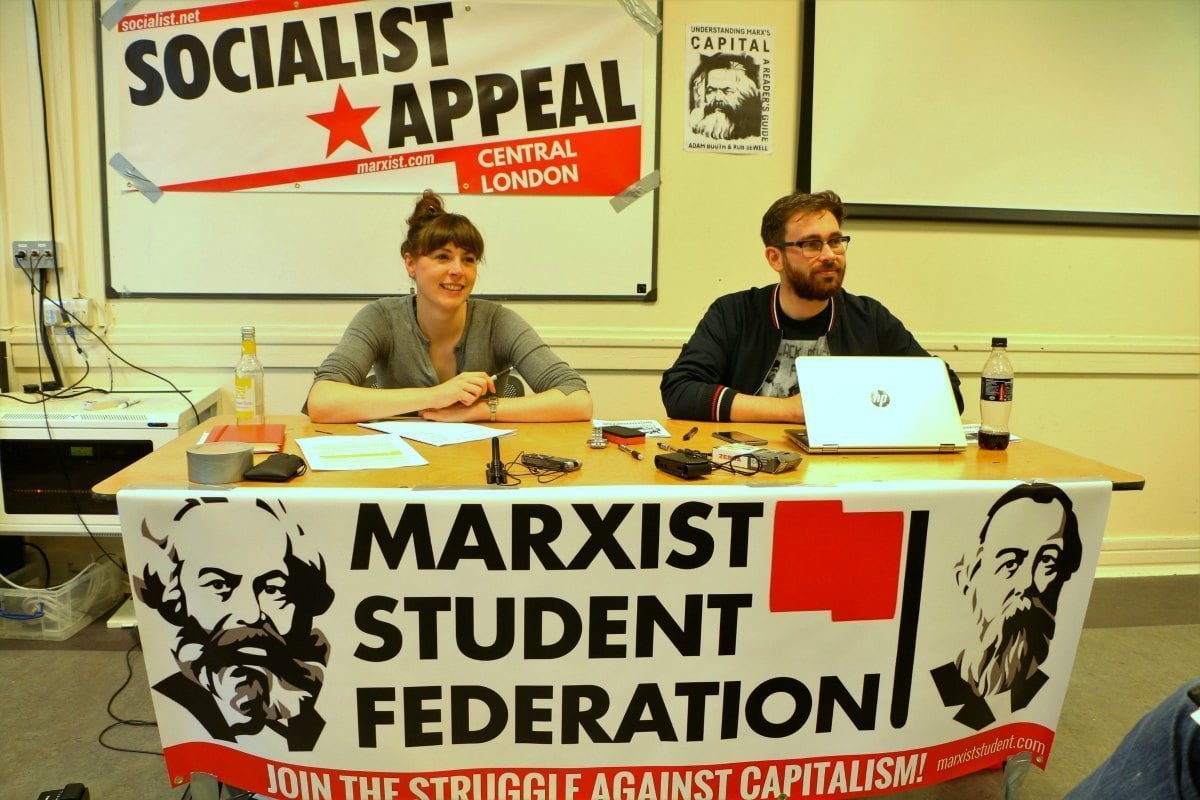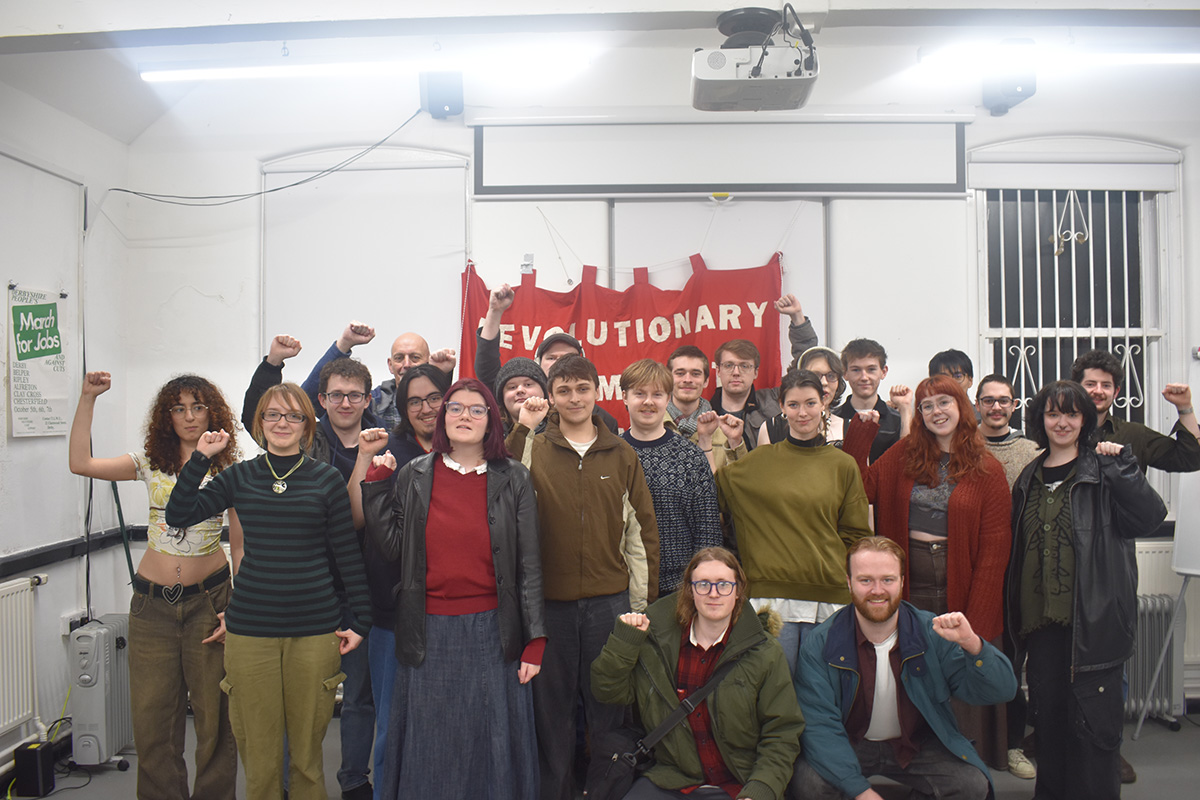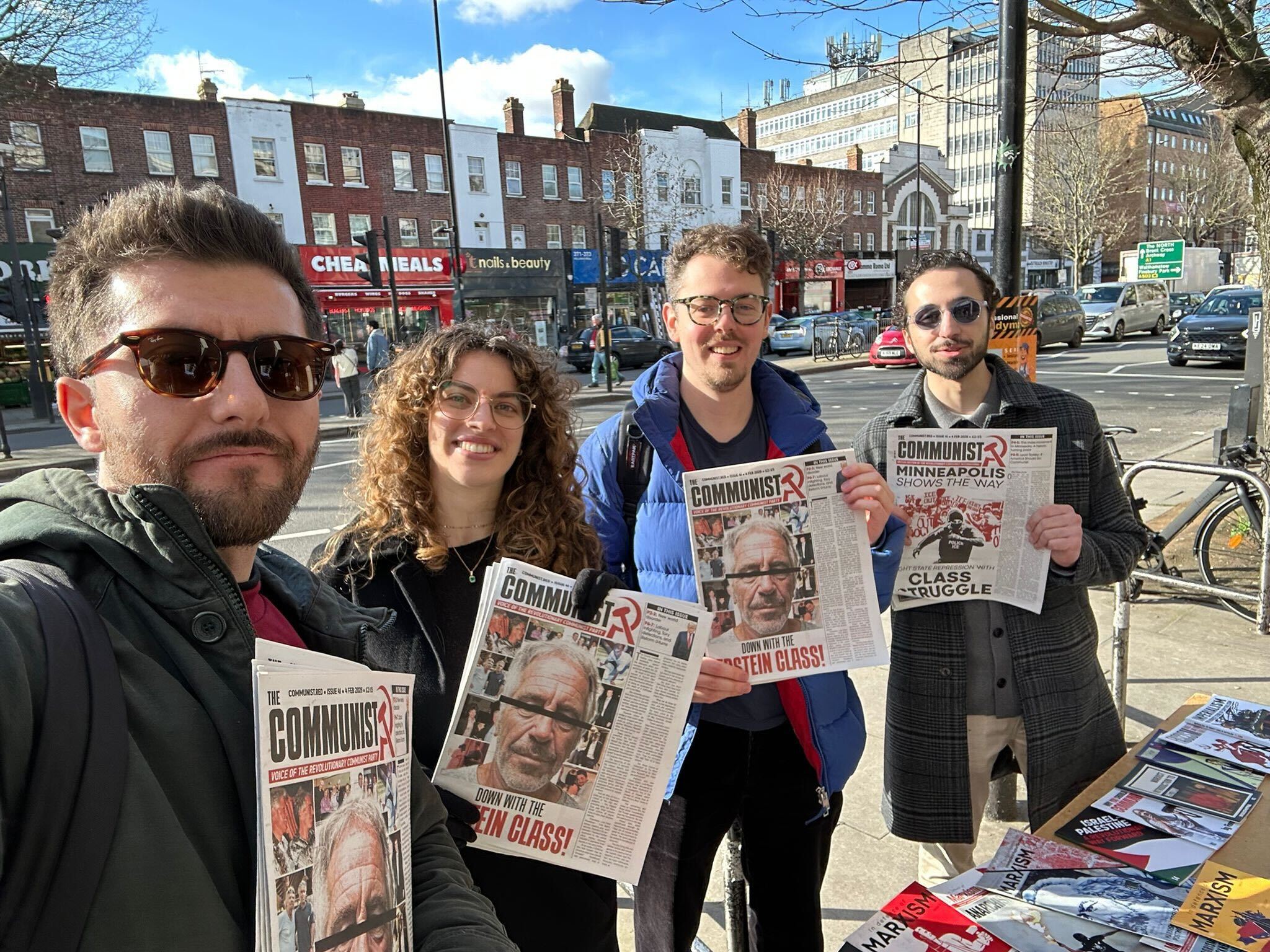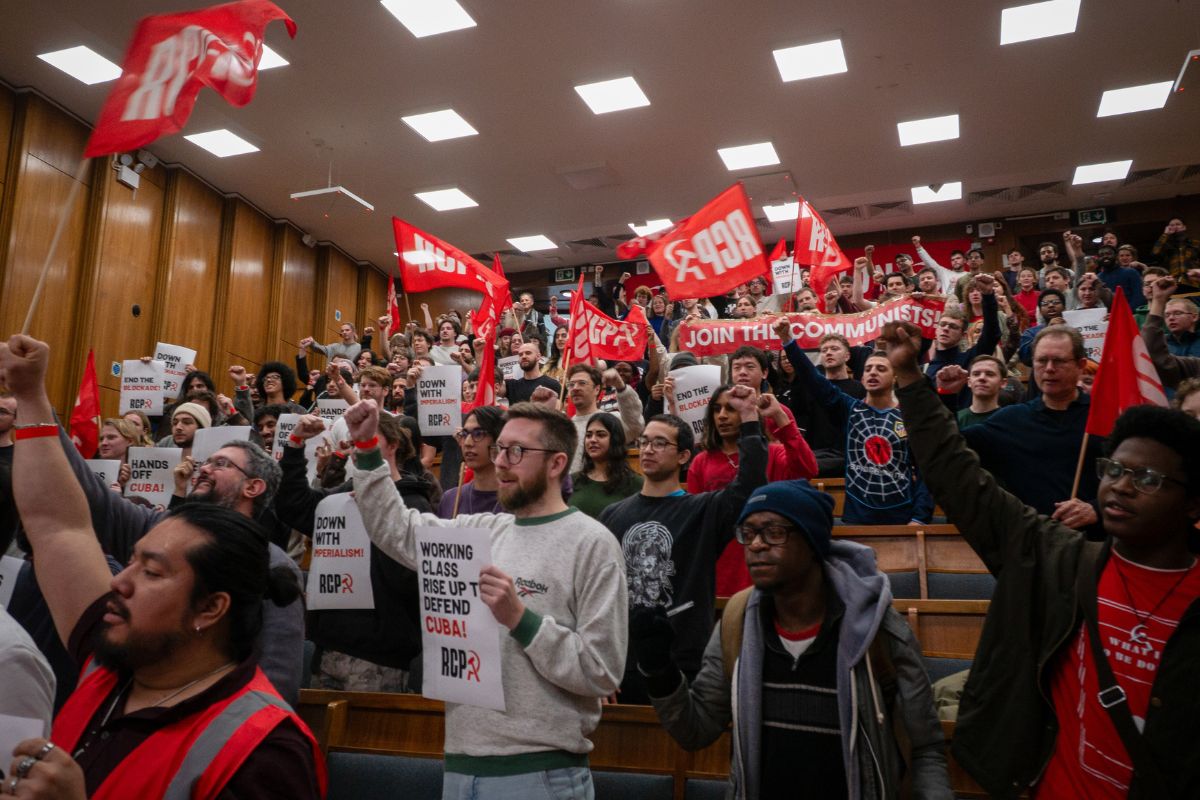On Saturday 16th September, over 80 students, workers, and activists from across the country gathered for “Capital in a Day”: an event hosted by Socialist Appeal and the Marxist Student Federation to celebrate the 150th anniversary of the publication of Karl Marx’s Capital (volume one).
Economics is often presented as being beyond the reach of the layman. However, throughout the day’s discussion of Capital, those attending and participating easily saw the link between Marxist economics and the conditions of their lives and workplaces.
Over the day, six sessions brought to light the fundamental points of Marx’s major work. Despite the density of Capital, the speakers illuminated his overarching theories on value, profit, exploitation, accumulation, and so on – concepts that will not be alien to any workers today.
The day began with an introduction to the labour theory of value and commodities by James Kilby. James explained that a commodity is the product of labour – this can be a good or service. A wealth of commodities, therefore, is the core component of capital and capitalism.
Under capitalism, James emphasised, commodities are not produced for the common good, but are produced in the interest of profit alone. This is why we have an abundance of waste under capitalism, due to overproduction, with goods going unsold not because there is no need for them, but because people do not have the money to pay for them.
A socialist society would not see an end to the advanced products being made today, such as smartphones and other modern consumer goods, but would utilise a democratically planned economy that caters for all the needs of society.
In the second session, Ben Gliniecki introduced a discussion on money. Crucially, Ben stressed how Marx put this question in a historical and social context to explain how money came into being and evolved.
The development of money, Ben explained, flows from the development of commodity production and exchange. As the forces of production develop, commodity exchange itself develops – i.e. trade and a market. Thus it becomes necessary to have one commodity against which to measure the value of all other commodities – a universal equivalent.
This is where the need for money comes in, initially in the form of precious metals, and later in the form of tokens (e.g. bank notes or digits on a screen) to represent value. However, Ben elaborated, governments cannot just print money beyond the value actually present in the real economy, as this leads to inflation.
As the crisis of capitalism deepens, we have witnessed the capitalists relax their own rules in order to try and escape these crises. This is the role of credit and quantitative easing. Yet all this proves is how capitalism has gone beyond its limits.
The third discussion was on the concepts of wages and profit. Natasha Sorrell of the Sheffield Marxists, and a teacher, introduced the topic, explaining how the only commodity the worker has to sell is their labour power. The capitalists buy this labour power in exchange for the workers’ wages.
The capitalists’ profits arise from the fact that workers are paid less than the value of their labour – i.e. what they produce. Exploitation, as defined by Marx, refers to this fact: that workers do not received back the full fruits of their labour. And the aim of the capitalists, Natasha noted, is to increase their profits by squeezing the workers harder and harder.
This is not just an abstract theory. Workers can see this today in their day-to-day lives. Contributions from attendees described how this can be seen in various modern jobs and industries, with low pay, cuts to staff, zero-hour contracts, unpaid overtime, and so on. This is particularly the case in professions once considered “middle class”, such as teaching. As the crisis deepens we have seen the “proletarianistion” of teachers and doctors alike. The bosses take the surplus that the working class creates and attack us when that surplus is threatened.
The penultimate talk was on machinery, technology, and productivity, with an introduction to the subject by Adam Booth. Adam described how robots and automation, under capitalism, is seen as a “threat” to workers. Currently, we are not liberated by machines, but enslaved by them, because of the barrier of profit, which we must remove.
Productivity has stalled over the years, Adam noted. The benefits of the increases in productivity that have been seen only go to the capitalists, leading to an enormous rise in inequality over the past few decades.
This fact led on to the final discussion – on the origins of capitalism and the inherent inequality within the system of profit and private ownership.
In the final chapters of Capital, Marx describes capitalism’s earliest stages of “primitive accumulation”. In his introduction of these chapters, Ben Curry brought out the complete barbarism that this nascent capitalism entailed – crushing the peasants and indigenous people of the colonies, and forming the transatlantic slave trade.
These deaths are impossibly to quantify; meanwhile, the death toll due to capitalism gets larger every second as millions die due to lack of access to basic provisions. This highlights the hypocrisy of the ruling class, who frequently point to the “deaths and horrors of communism”, yet conveniently ignore their own history of slavery and brutality.
Ultimately, everything that was discussed over the course of this exciting day event can be seen in every workplace today. Capital is not just a piece of academic work; it is a tool to be used in the overthrow of capitalism.
There is no doubt that this system has outlived its usefulness. Events like “Capital in a Day” remind us of the importance of theory – but also, more importantly, how we must act on these ideas: the educate, agitate, and organise to fight for a revolutionary change.







